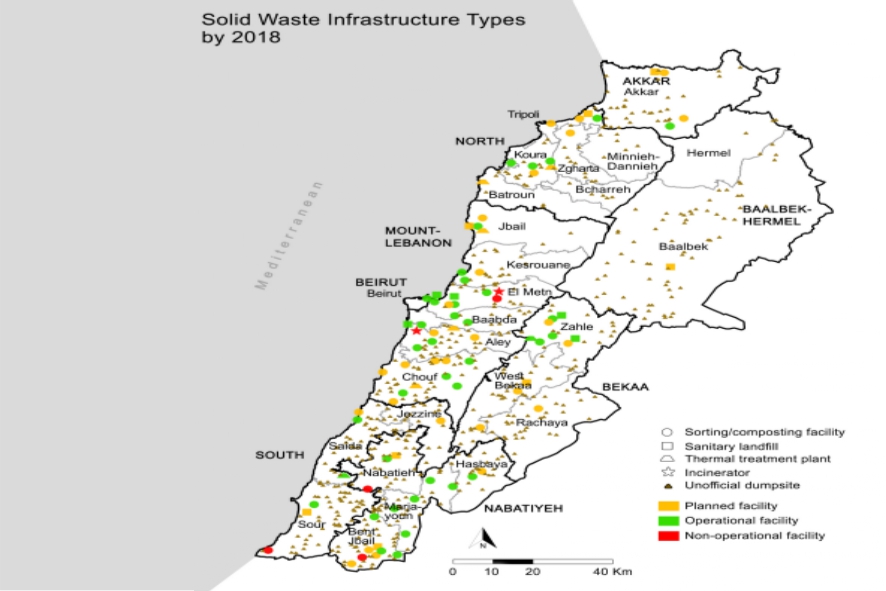Coordinator |
Volunteer Needed
Researchers |
Volunteers Needed
Mappers |
Volunteers Needed
Stakeholders |
Stakeholders Needed
Author |
Lynn Moghrabi
The Institutional Environmentalism initiative works towards building a networking channel between recycling facilities and bodies that produce waste such as supermarkets, restaurant, pharmacies, factories, and more in Lebanon. By monitoring the back and forth between the recycling facilities and these bodies, as well as overseeing their sustainability measures, this project aims to secure environmentally-friendly practices in each district across Lebanon. A prototype will be developed in each district; however, despite being approached separately, the prototype will behave as a uniform model that is applicable in all districts.
Impact
Responsible Consumption & Production, Restore Terrestrial Ecosystems, Climate Action, and Sustainable Cities.
Narrative
Lebanon lacks proper and effective waste management plans and environmentally sustainable impacts on the surrounding [El-Fadel & Maalouf, 2020]. Local supermarkets, for example, continue to discard waste incorrectly. In Lebanon, there is a noticeably low rate of institutional reducing, reusing, and recycling. Not to mention that waste from food manufacturing companies, as well as the cow and sheep farming industry is being discarded in rivers. A study conducted in 2019 demonstrated that, although there is a large percentage of waste in Lebanon that is organic [52%] and recyclable [37 %], only 8% of solid waste is recycled, and only 15% is composted - with 48% of the waste being disposed of in sanitary landfills [Ismail et al., 2019]. To add to that, and according to Ismail et al. [2019], most of the waste is dumped and burned - most commonly in Beirut and Mount Lebanon. There are also no available mechanisms to discard wastes produced by slaughterhouses, industrial premises, and healthcare centers [Ismail et al., 2019]. The necessary awareness of sustainable work ethics, on the institutional level, is absent.
Intentions
Primarily, infographic mappings will be developed: district selections and database containing all the recycling facilities within the district, their locations, points of contact, recycling capacities, and type[s] of recycling. All potential collaborators will also be listed, such as schools, universities, workplaces, pharmacies, shops, restaurants, and supermarkets - among others. In the second phase, the networking channels between collaborators and recycling facilities will be built. Relationships will be custom to each type of recycling and the process will be managed by a respective delegation. An impact study and reporting are monthly. In addition, monthly visits to collaborating facilities will be conducted. There will be monthly reports on the institutions' sustainability measures. The facilities that are involved in the application of environmental KPIs will be recognized. Finally, and in order to prove the application of the aforementioned KPIs, documents conveying the environmentally friendly bodies found during field visits will be provided.
